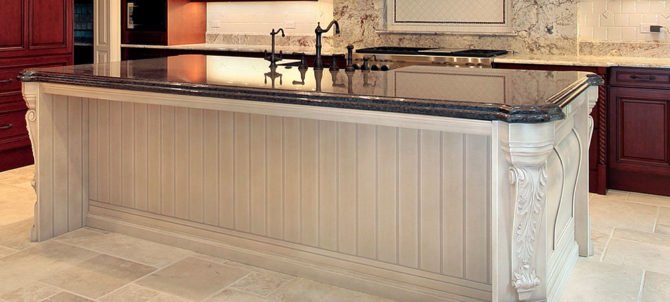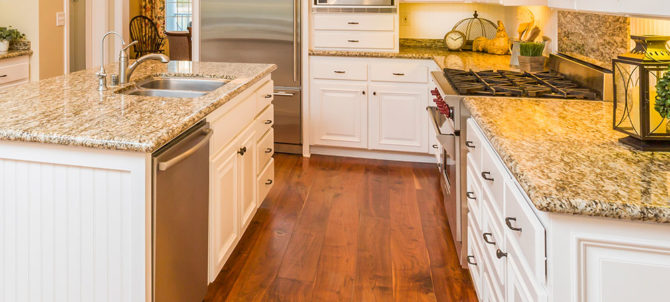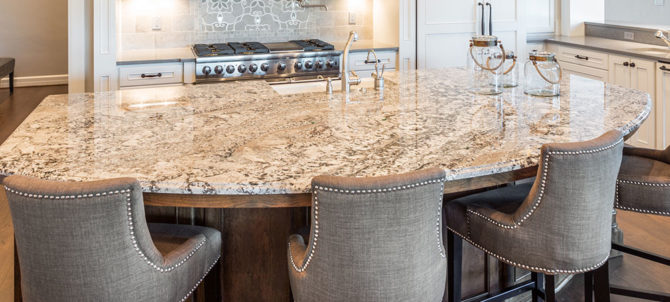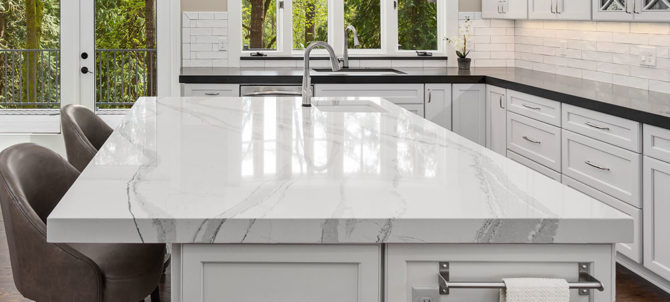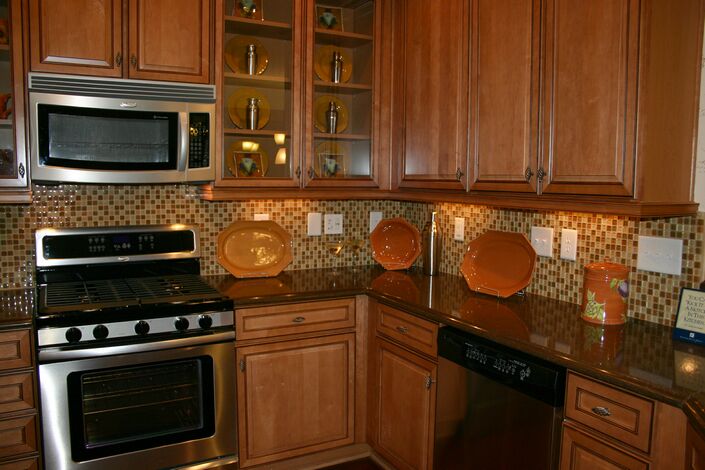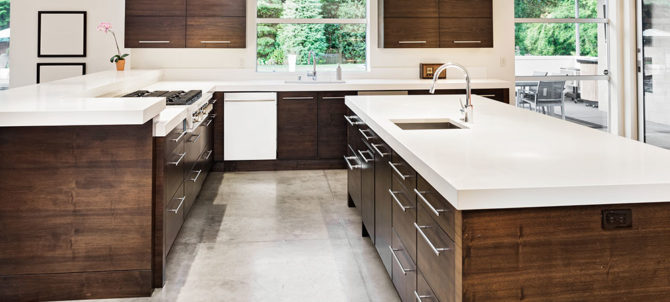
Marble make a beautiful accent to any area in the house. This timeless material looks great in kitchens and baths and is renowned for its beauty. While this is the case, marble is more brittle than other materials and is prone to scratches, etching, and stains, especially when used for countertops.
The good news is that with proper care, marble countertops can continue to look fabulous no matter how frequently they are used. Here are techniques for maintaining marble countertops and keeping them looking white for a long time:
Properly clean the countertops
Do you miss the dazzling sheen of the marble countertop when they were new? Maintain cleanliness to maintain brilliance. For routine maintenance, use mild dish detergents or a pH-neutral stone cleaner.
You can use a damp cloth to rinse well, sop up any standing water using absorbent paper towels, such as those from Papaya then dry the surface well with a microfiber cloth in a circular motion.
You can use dishwashing soap as it is light enough not to peel the sealer but will remove cooking oils and fats. Once the marble countertop or other marble surface has dried, rub it with a chamois to restore its luster.
If filth, gum, or other sticky and disgusting material becomes trapped on your marble surface, use a razor to scrape the area lightly with light pressure. In no time, you will have spotless marble floors and counters.
Furniture pads and coasters are ideal for coffee tables, and other high-traffic surfaces. What about those lovely brass trivets? Avoid laying them on a marble countertop, as they might etch and damage the surface.
Other no-nos are gritty steel wool, acidic cleansers, and your collection of culinary oils. To display the vinegar and olive oil, use a fancy cutting board or a small plate.
Get rid of stains as soon as possible.
If you want to clean up a spill, do so as soon as possible. Don’t wipe; let the cloth absorb the liquid. If you don’t notice a spill right away, there is still hope.
The Natural Stone Institute recommends cleaning most organic stains, such as food, with a 12% hydrogen peroxide solution and a few drops of ammonia.
If you’ve spilled something oil-based, such as a vinaigrette, and the stain has been set on your light marble countertop, use a liquid cleaning solution containing household detergent, mineral spirits, or acetone.
You can also make a paste by combining one component of 3% hydrogen peroxide with two parts baking soda. Apply the paste to the stain, allow it to sit for a few minutes, then scrape it away, rinse, and dry the area.
You should note that whatever stain-removing methods you devise, use them cautiously or risk worsening the stain. If it stains, there are certain DIY poultices and pastes that you put to the stone to remove the stain.
But you should test these in an inconspicuous location first, as things often tend to go wrong.
If you are unsure whether you can remove a stain from a marble surface, it may be time to hire a professional. With stains, it often should be left to a professional, who knows which commercial poultice to use and how strong to make it depending on the stone and color.
Keep your marble sealed.
Sealing marble is the most critical aspect of protection. Whatever marble you have in your home, you should seal it on a regular basis. According to the Natural Stone Institute, sealants do not make stone stain-proof, but they make it more stain-resistant.
When sealing, you should note that not all marble is made equal in terms of the sealing schedule. The frequency depends on the care, the place the marble is, and the level of traffic in the area.
Use a sealer once a year to keep high-traffic areas like the kitchen, bar, and shower in top shape.
If you are new to marble surfaces, you should know that a marble sealer will not last forever. You’ll have to treat your marble several times. This is because the sealer will wear off over time from use and daily cleaning.
How do you tell if a marble surface needs to be resealed? Look for water rings, spots, or stains. Water does not affect the marble as long as it is sealed. If water leaves ring markings, it indicates that the stone should be sealed.
A simple test you can do to determine whether you need to reseal the marble countertop or surface is to pour a small amount of water on the counter (about 2 inches in diameter) in a few different areas. You should leave it for around 30 minutes.
The water should bead like it was poured on a mirror. After the water has been cleaned, the marble’s color should remain consistent, indicating that it has been sealed. If the water spreads and the area becomes black within 30 minutes, the stone must be sealed again.
If you notice more than just watermarks, such as efflorescence (a crystalline deposit that appears on stone and is usually whitish or grayish), it could indicate that moisture is trapped beneath the stone, and you should seek professional assistance.
Parting shot
These are the tricks you can use to keep your marble countertops white. Remember that maintaining your countertops involves proper cleaning of the surfaces.
Do not use vinegar or lemon juice to clean your marble. Acids are the enemy of any stone, but especially marble, which is softer and more porous.
Acids react with calcium carbonate, eating away at the stone. Etching the stone can be done with wine, orange juice, or coffee. Due to this you should avoid using abrasive chemicals or citrus-based cleaners, such as Lysol All-Purpose cleaning, because the acids will remove the sealer and produce spots over time.
You can seal the countertops yourself, but for the best outcome, let experienced kitchen countertops NC contractors help you out.
